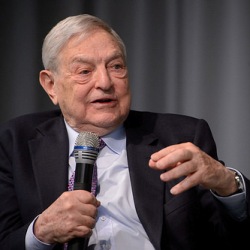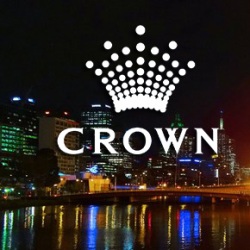Casino Companies Currently Experiencing a Roller Coaster Ride

Some of the world’s biggest casino companies and their investors have been experiencing a roller coaster ride over the past few months. Here’s a round up of some of the biggest related stories hitting the news of late.
Caesars Entertainment
This week, we learned that billionaire George Soros (photo) is currently one of Caesars Entertainment’s top ten stakeholders following the bankruptcy reorganization that took place last October. Although the 87-year-old’s private firm Soros Fund Management group has been investing in Caesars stock for many years, its overall holding has now increased to 34.5 million shares, representing a 4.89% stake in the company as of December 31, 2017.
In addition to its Caesars shares worth $436 million, Soros Fund Management also own a 7% stake in VICI Properties, the real estate investment arm of Caesars which owns a number of Caesars-operated hotels. Apart from his shares in Caesars, however, Soros is not believed to own any other casino company stocks.
Having been discharged from bankruptcy last October, Caesars Entertainment now has high hopes of establishing itself within the industry once more and gaining on rival firms such as MGM Resorts International, Wynn Resorts Ltd and Las Vegas Sands Corp by expanding its operation both in the United States and abroad.
Star Entertainment Group
Meanwhile, one of Australia’s largest gaming company’s, Star Entertainment Group, has started concentrating its efforts on its own domestic market following the problems its staff encountered in China last year, and the ensuing high-profile split it had from its partner Melco Entertainment. That break also cost it around $3 billion alone after the shares it sold in Melco subsequently rose exponentially over the past 12 months.
This week, Star Entertainment investors then got hit with some even worse news after the company revealed that its profit in H2 of 2017 had tumbled by 76.8% to $32.9 million. Star shares subsequently fell by around 7% after the news was released, marking their biggest drop in two and a half years, and reducing the company’s market value to A$4.7 billion. Commenting upon the development, Matthew Felsman from APP Securities Pty Ltd, explained:
“Investors are focusing on the three words ‘mixed, difficult and softer’, prompting the market to assume the worst with what could lie ahead.”
Following its exodus from China, Star Entertainment was pinning its hopes of recovery on a return of VIP high rollers to normal levels at its Australian casinos. That appears to be already be happening as VIP turnover was up by nearly half in H2, although unfortunately for the operator its VIP customers also won at a higher rate than normal.
Overall, though, “normalized” interim profit reached A$120.4 million in H2, higher by 12% compared to the same period of time in 2016, with a recovery in Macau’s gambling market also helping to increase visitors traveling to Star’s casinos in Australia. As Star chief executive Matt Bekier subsequently explains:
“If you look at the typical VIP guest, who goes to Macau for example, they play in 2.6 casinos over three days. I think the exact same things is going to happen in Sydney, we share a lot of VIPs between us and Crown and us.. they like to have a second bite of the cherry.”
Wynn Resorts
Another casino giant, Wynn Resorts, may have averted some bad press after Steve Wynn resigned as the company head following a series of sexual misconduct allegations, but the company now has an even bigger problem to deal with. Former 20% owner in the Wynn, Japanese billionaire entrepreneur Kazuo Okada, is currently suing the company for pushing him and his holding company Aruze USA out of the business, arguing that the board was not acting independently when it did so, but simply obeying the instructions of its CEO at the time, Steve Wynn.
In 2013, the Japanese businessman’s lawyers asserted in their court filing that “Mr. Wynn consistently refused efforts to consider Aruze USA directors for the board, in an effort to continue to monopolize control over Wynn Resorts.”
Okada’s 25 million shares were subsequently sold for $1.9 billion, but would now be worth around $4.1 billion, meaning that any resolution in favor of Okada would result in a heavy penalty for Wynn and “dilute the future value to the company.” This would be exasperated further by claims of an additional $700 million in uncollected dividends by Okada, bringing any claims for damages to around $3 billion.
One positive bit of news for the company is that both Steve Wynn and Kazuo Okada are no longer at the helms of their organizations, meaning a settlement may be reached more easily without such big warring personalities involved.








